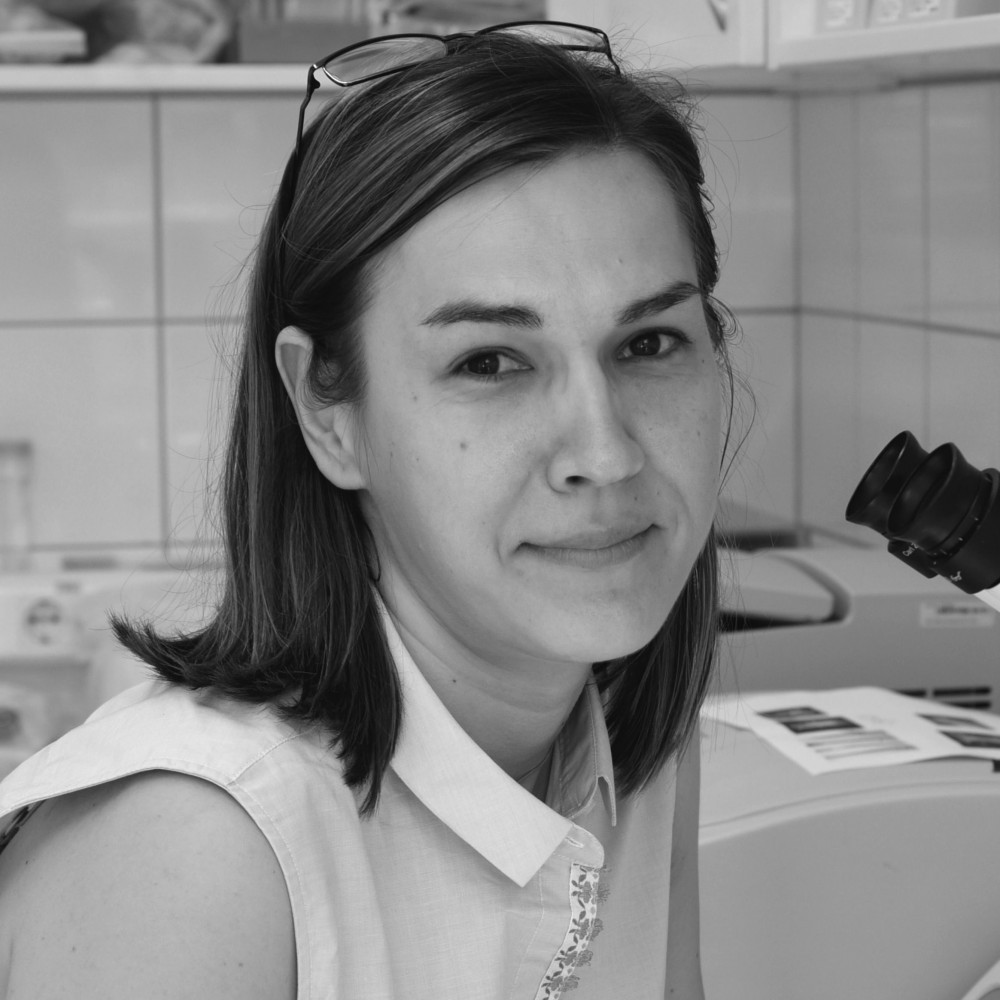Participants
‹ Back
DR Adél Sepsi
Senior Research Associate, ATK MGI
CV
Adel Sepsi is currently working as a Research Scientist at the Centre for Agricultural Research (Agricultural Institute, Hungary) as well as at the University of Chemical Technology and Biotechnology (Department of Applied Biotechnology and Food Science, Budapest, Hungary). She carried out her PhD in crop improvement where she developed and characterized wheat-alien introgression lines in order to transfer favourable characteristics and increase genetic variability of cultivated bread wheat. During a Marie Curie IEF fellowship (University of Leicester, UK) she contributed to the understanding of the important role of the centromeres during meiosis and meiotic homologous chromosome pairing that leads to recombination and fertility in polyploid and diploid species. She provided the first direct evidence that meiotic centromere associations correlate with the timing of meiotic synapsis in wheat. She described how meiotic centromere associations transition to pairing in hexaploid wheat and proposed that that timely tethering and subsequent release of landmark chromosomal regions from the nuclear envelope have an impact on the fidelity of pairing, valuable for its manipulation and control. She applies fundamental knowledge on the meiotic process to explore the heat-stress sensitivity of bread wheat carrying dwarfing genes almost universally present in modern wheat cultivars globally, making it a critical question for future food security.
Abstract
Abstract:Plenary lecture I focused on the moral principles imposed on Today’s scientific research and interrogated whether moral principles should regulate scientific development. Some of the considerations involved issues related to scientific research itself (research methods, authorship, conflict of interest, reporting and responsible) while others dealt with research practices carrying prevailing possibilities for the whole society. Remarkable opportunities such as genome editing, artificial intelligence, driverless cars, machine learning and deep learning create difficult and deep questions and raise concern within the society. While there is not one right answer, the scientific community needs to identify the risks and generate a dialogue with the public. Ethics and science need to progress at the same speed and research projects must be in line with ethical considerations. Science should be an effective instrument to expand human knowledge, solve violence and reduce human suffering. Scientific values thus need to be aligned with the values of the society and scientists must engage in a wider way to reduce anxiety and achieve consensus within the World. International collaborations need to be emphasized more than ever and nations need to work together towards shared goals to advance scientific productivity. The scientific community has a leadership role, but science alone is not the answer, a collaboration of different representatives of the society, including decision makers, is needed to ensure the appropriation of science.
The panel discussion emphasized that the application of ethical practices in science is a process. Experiments from the past will help to assess the appropriateness of science approach in the future. Ethics should be the new foundation of scientific discovery.